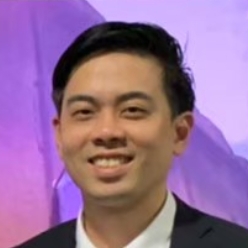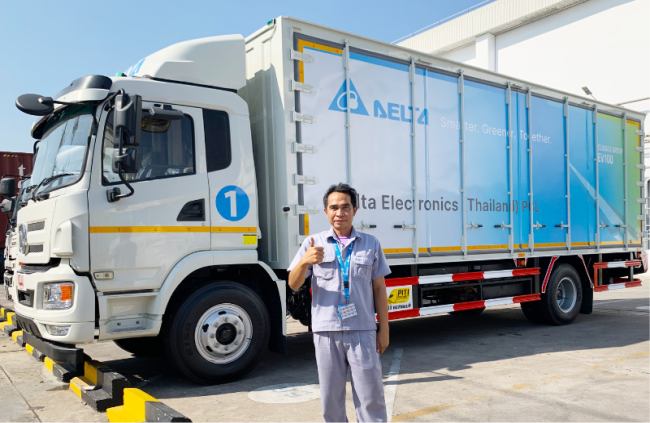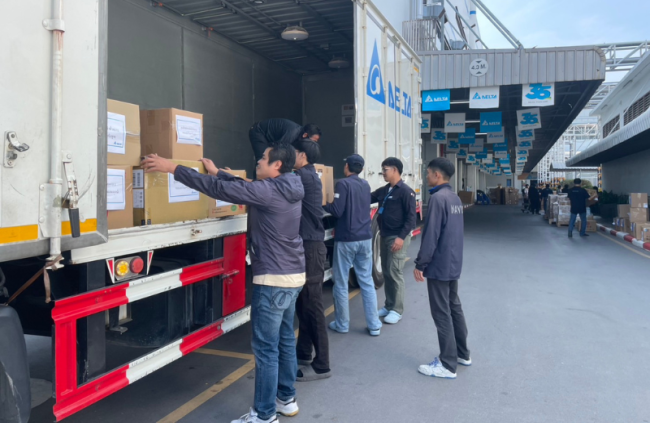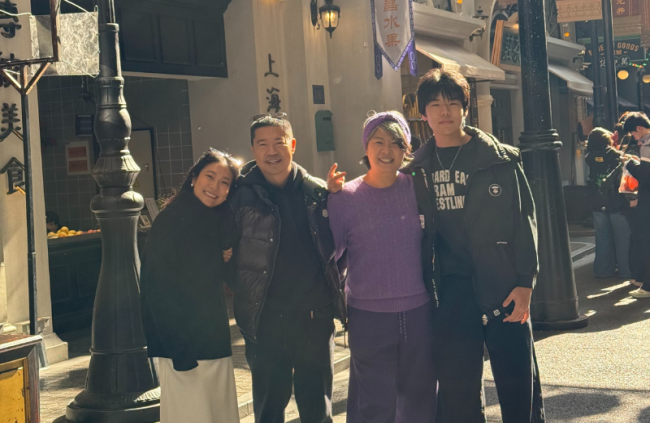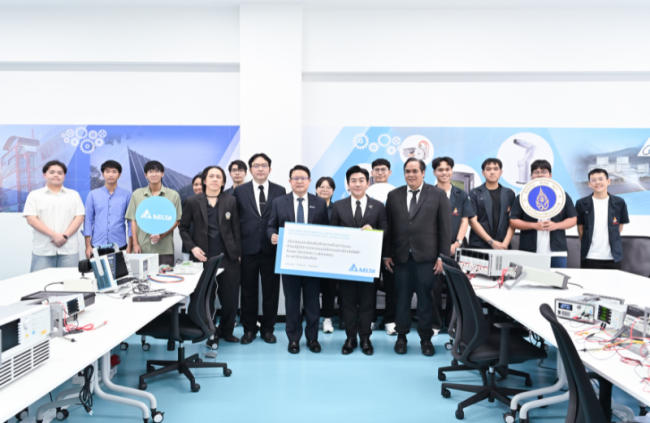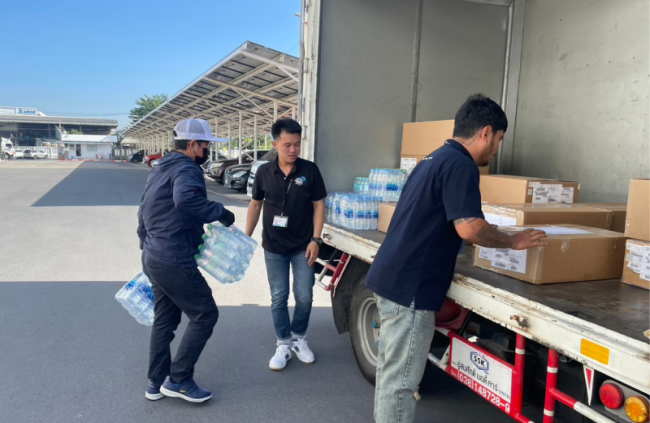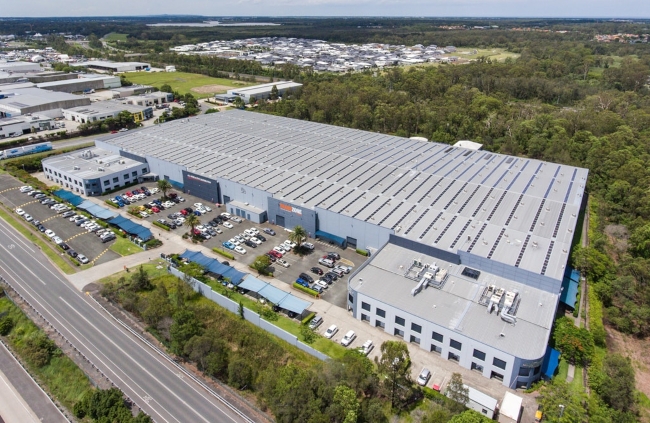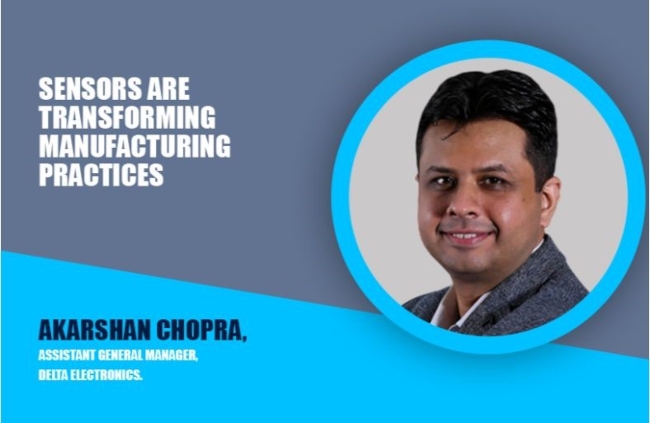Empower Your Talents for Lasting Success: Delta Thailand Materials and Procurement Head’s Talk on Building a Leadership Legacy
By David Nakayama - Published January 19, 2022
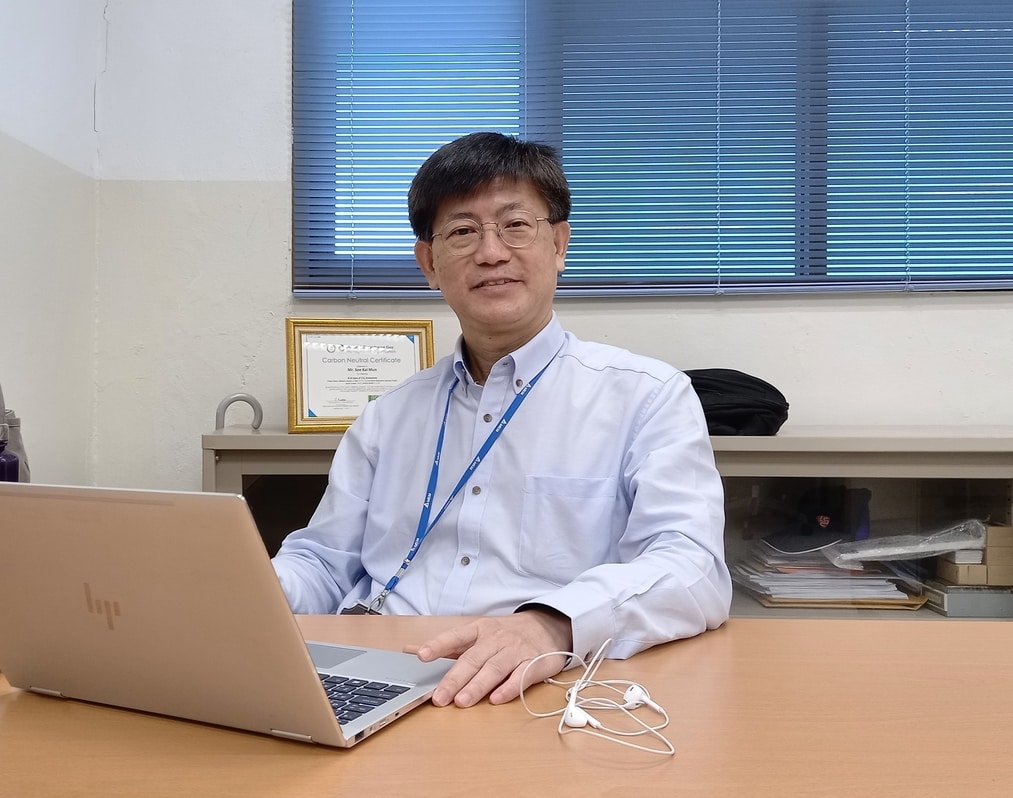 Interview with Chris See, Delta Thailand CPC/Materials Sr. Director
Interview with Chris See, Delta Thailand CPC/Materials Sr. Director
Text and Photos by David Nakayama, DET Corp Comms
Samutprakarn, Thailand, December 14, 2021- At Delta Thailand, we often say “People are our greatest resource” and few people have a greater legacy for developing talents and managing our material resources than DET veteran, leader and mentor Chris See who has supported Delta’s rapid growth with materials and procurement teams in Thailand, Slovakia and India for almost three decades.
I got to spend some time with our accomplished yet down-to-earth Materials and Procurement leader at our DET central procurement committee (CPC) department. He talked about his career spanning Southeast Asia, Europe and India and gave in-depth insights into the complex world of materials and procurement. He also shared on how to enjoy life and work in Thailand and grow from a manager into a genuine leader that empowers people.
You’re one of DET’s key leaders from Malaysia, next to Thailand. Can you share with us about your unique background and your early career?
I’m from Johor Bahru, the Southernmost State of Malaysia linked to Singapore by the 1km Johor Causeway. Coming from the multicultural society of Malaysia, I was blessed to experience diversity with Indian, Chinese, Malay and Western cultures and I can speak Bahasa, Mandarin and English along with Southern Chinese dialects like Hokkien and Teochew along with Thai now.
My double diploma is in Electrical Engineering and Business Management and my first job in 1983 was as an assistant engineer at a palm oil refinery in Johor State, Malaysia. After just one week, the head engineer resigned, and I had to take responsibility for the whole maintenance plan of the factory. This was my first challenging management role and fortunately, I had support from the plant manager and the senior maintenance staff who supported me with coaching and guidance.
After less than a year, the refinery went into receivership and I got a new job as a production technical assistant at Asahi Consumer Electronics Singapore producing audio products like Walkmans, cassette recorders and mini Hi-Fi devices. In less than a year, I got promoted and transferred to the engineering department’s management fast track.
Then, on a trip to Malaysia, I attended a walk-in interview at a hotel. I was happy with my career at Asahi, but hearing about the challenges and opportunities of a career in the materials convinced me to join Thomson Consumer Electronics. In 1985, I started my third job as a sourcing officer, then I became section head, section manager and finally materials manager in 1992.
How did your career develop in Delta Thailand?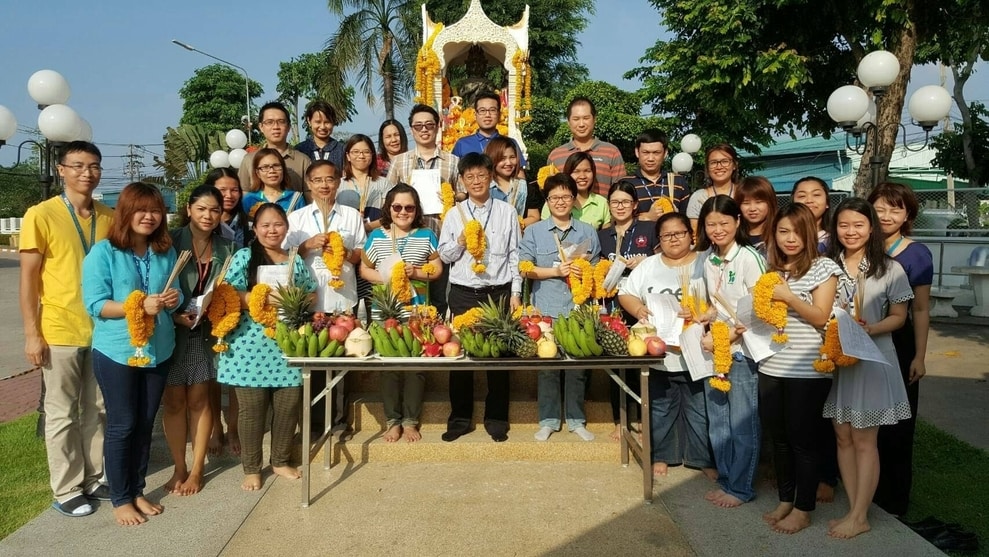 In 1993, Thomson relocated to China, so I joined Delta Thailand with some colleagues, but after three years, I was the only one left here. Delta was enjoying rapid growth and I was extremely busy. During 1993-2003, I mainly helped train and build up the production planning and material control (PMC) and warehouse team for order fulfillment in the power supply BG. We built up the DELL & Gateway business from zero to 300 million USD in around five years.
In 1993, Thomson relocated to China, so I joined Delta Thailand with some colleagues, but after three years, I was the only one left here. Delta was enjoying rapid growth and I was extremely busy. During 1993-2003, I mainly helped train and build up the production planning and material control (PMC) and warehouse team for order fulfillment in the power supply BG. We built up the DELL & Gateway business from zero to 300 million USD in around five years.
In 2003, DET acquired Ascom, now called Delta Energy Systems (DES), I was part of the integration team for materials. I helped setup the CPC & Material Management team for smooth product transfer from DES manufacturing locations in Europe, China, US to DET. I managed the CPC team in Thailand and the PMC team in Slovakia, traveling frequently to DES RD center Soest and Teningen Germany, Bern Switzerland and our factory in Slovakia. We made CDBU profitable in 2008 and after 2010 we had double-digit annual profit.
When Dick became DET president in 2014, I became DET and DES head of material management and stayed in this role until now. In 2015, I helped set up the DIN CPC and PMC teams. We now have 35 CPC and 202 PMC members in DET while in DIN we have 18 CPC and 35 PMC members.
Procurement and materials are a huge part of our manufacturing success and customer fulfillment. How do your teams provide value to Delta and how has your role evolved over the years?
One of our team’s major contributions is customer order fulfillment by ensuring stable material supply and flexibility. As customers often want to pull in or push out orders so we need to have that flexibility to best meet their needs.
We also help reduce Bill of Materials (BOM) costs through negotiation and value engineering. We work closely with RD to propose alternative sources and materials. For example, during the design stage, we may propose more cost-effective components and alternative raw materials e.g. replacing copper with aluminum for heat sink or bus-bar to reduce the product price without compromising quality and design specs for the customer. We help improve Delta’s financial position through increased profit leverage with the supply chain cost reduction. For example, if we reduce costs by 1% this goes directly to Delta’s profit.
Our role evolved from a traditionally more administrative one in the past to a more strategic one now. Because material costs contribute to a major portion of our total operating costs. A well-managed supply chain can significantly reduce costs and drive up profit. This efficiency reflects in every aspect of the supply chain, from R&D design to shipments of Finished Products.
What are some top qualities you look for in a supplier, and how do you build strong and lasting working relationships with our vendors?
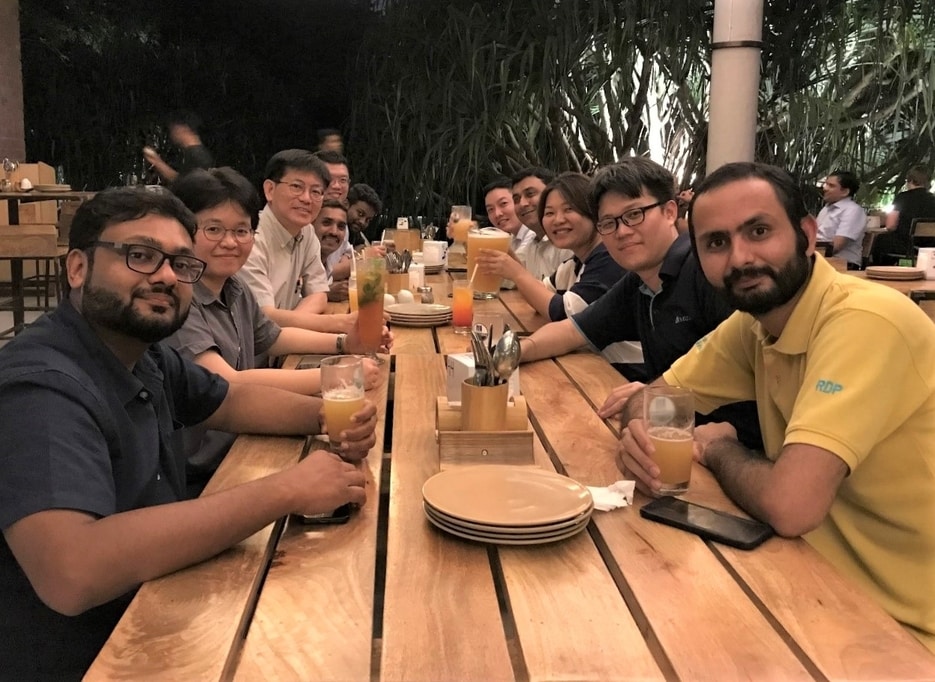 Delta assesses suppliers based on our unique TQRDC criteria, which stands for Technology, Quality, Responsiveness, Delivery and Cost. We value suppliers who are ethical, professional and committed to growing with us. We grow fast, so need partners who want to grow too.
Delta assesses suppliers based on our unique TQRDC criteria, which stands for Technology, Quality, Responsiveness, Delivery and Cost. We value suppliers who are ethical, professional and committed to growing with us. We grow fast, so need partners who want to grow too.
Right now, we have 30% local supply (2-3 days of inventory) for Just-in-Time production and another 30% of the material (2-3 weeks inventory) is by consignment or vendor-managed inventory (VMI) in a vendor management hub of Delta or 3rd party warehouses. This total 60% of materials are considered our localized supply that provides us better order fulfillment flexibility.
The VMI setup helps us drive down our inventory and gives our company better cash flow. This is quite good in Thailand’s manufacturing industry because of the smaller SME base as compared to China.
How has COVID-19 impacted our supply chain, and how are we working to manage risks and overcome challenges to deliver to our customers?
COVID affected the whole supply chain continuity of supply, particularly for semiconductors such as IC and MOSFET supply. To mitigate risk, we work closely with RD to add in alternative sources and we place long-term POs with suppliers, especially for semiconductors that have an average lead time of four months to a year.
We have regular con-calls with suppliers to review shortages. For example, recent COVID lockdowns in Malaysia affected the semiconductor industry badly and caused a bottleneck as factories closed or were at only 50-60% capacity. Semiconductor wafers couldn’t go through all the backend assembly processes like wafer dicing, die bonding, wire-bonding and testing timely.
What are some major differences between the supply chain and business culture in Southeast Asia and India?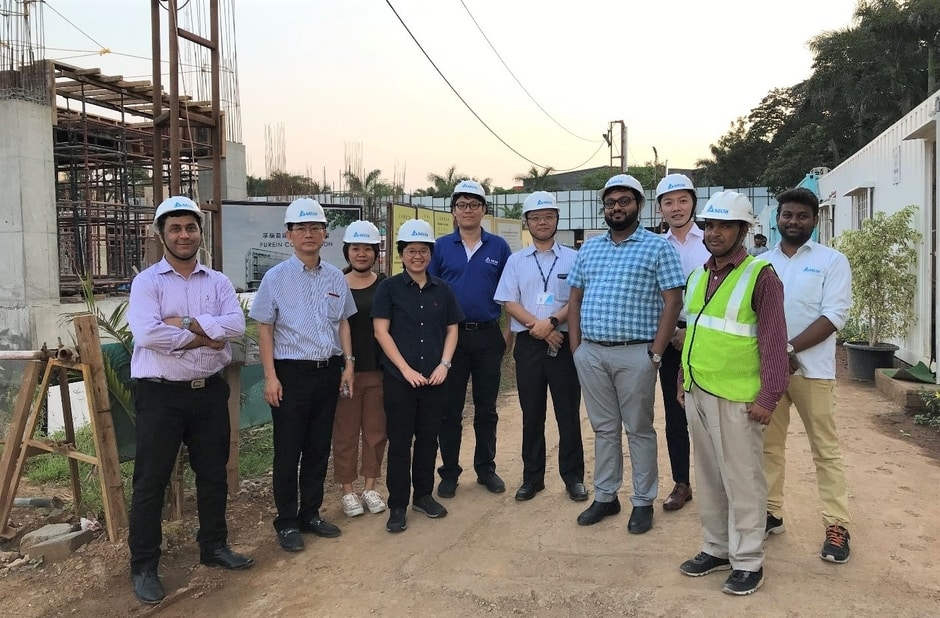 The major difference is in customer requirements. In Thailand, our customers are global OEMs with repeat orders and more long-term planning and rolling forecast. In India, our major customers are domestic with bidding-based orders with short and inconsistent forecast.
The major difference is in customer requirements. In Thailand, our customers are global OEMs with repeat orders and more long-term planning and rolling forecast. In India, our major customers are domestic with bidding-based orders with short and inconsistent forecast.
This is a big challenge for our team because DIN cannot leverage volume due to the low-volume-high-mix business. It takes a lot of time and resources to go through bidding and development for each single project that has low volume. Business in India is always about price, price and price again. It’s a red sea market with a lot of competition all fighting over price. So it’s very challenging, but it’s a big and growing market.
Profitability is very challenging, especially when production depends on parts from Delta sister plants in China/Thailand which get marked up and overseas third-party suppliers which are imported with US currency. Production at the new Krishnagiri plant in Southern India will help create a better balance with transferred products from Thailand and China, providing the needed increase localization of our products to better leverage volume and improve profitability.
How do you effectively manage different stakeholder requirements and expectations to form your business strategy and succeed in high-stakes negotiations?
Expectations from production, sales and BUs are to keep our material supply stable while ensuring cost reduction and order fulfillment to meet customer requirements. Meanwhile, we must control our warehouse inventory. We manage this with annual price negotiation with suppliers or RFQ and monthly review of order attainment vs inventory levels and BOM cost. These are our KPI that we need to drive for Y-o-Y.
Negotiations depend on whether it’s a buyer’s or seller’s market. This year is a seller’s market, especially for Semiconductors and Passive Components and we faced quite a daunting challenge of facing prices increase. Before COVID, no one expected such high demand for products. Previously, the US-China trade war made many suppliers conservative and there were very minimum investments in new semiconductor wafer fab facilities.
The relationship we built with suppliers over the years has helped us and we still managed to grow 30% this year, but of course, higher cost affects profitability. Our advantages are high sales growth with purchasing power, financial stability and on-time payment. Delta treats suppliers with integrity and they don’t need to entertain us, which earns their respect and during serious shortages we still get very good priority and allocation.
Despite your challenging responsibilities at Delta, you are known for your can-do attitude. How do you maintain your focus and keep a good work-life balance?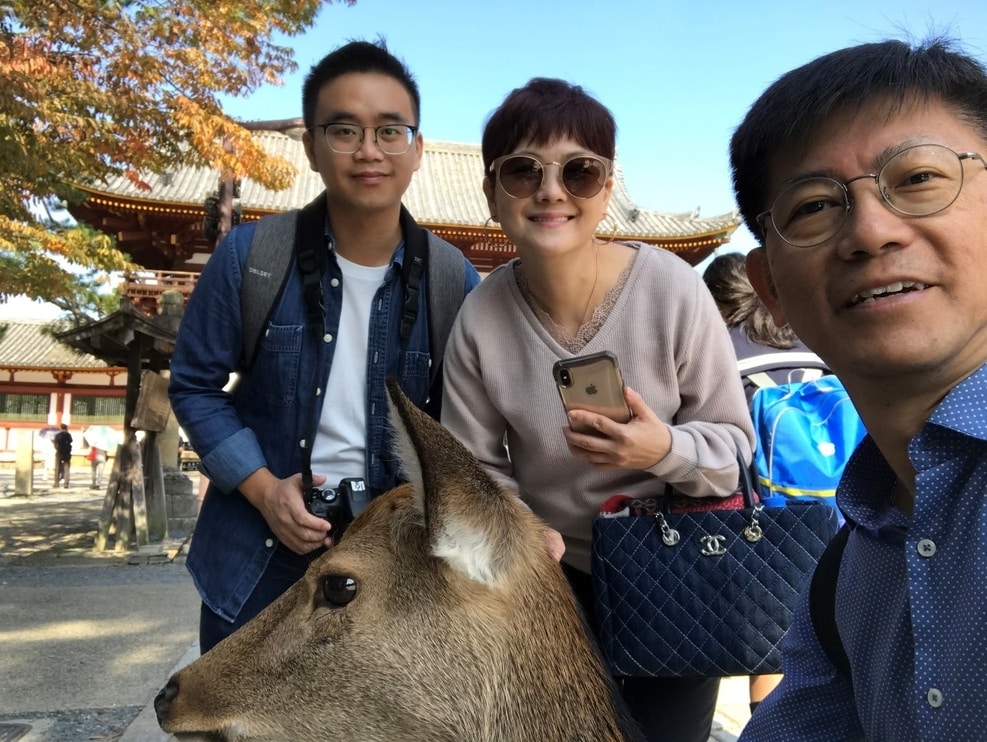 I think you need to be positive and have an open mind to accept good feedback. The key to success is good teamwork. To maintain a good work life balance, I usually try to travel at least once a year with my family to Europe, especially Austria, Germany and Switzerland. Two years ago we started going to Japan too. My strategy for travel is to go as far as possible while we can and when we get older, we’ll visit destinations closer to home.
I think you need to be positive and have an open mind to accept good feedback. The key to success is good teamwork. To maintain a good work life balance, I usually try to travel at least once a year with my family to Europe, especially Austria, Germany and Switzerland. Two years ago we started going to Japan too. My strategy for travel is to go as far as possible while we can and when we get older, we’ll visit destinations closer to home.
And time flies fast! My wife and I have lived in Thailand for 28 years already. I originally only planned to be here for two years, but they keep me busy at Delta. The work environment is conducive and the Delta family spirit is great. I never felt bored because there is always some new challenge to tackle. When Thailand is doing ok, we will have an issue in India or in Slovakia. It’s never stable at all three locations at the same time.
Your leadership workshop on effective delegation is great for any aspiring Delta leader. What steps can managers take to empower people and become true consensus-type leaders?
My steps are:
- Analyze the task that needs to be done
- Identify your best direct report to take responsibility for it
- Meet with your team member and explain what needs to be done
- Implement delegation
- Follow up to make sure everything’s on track and find out how to support
Remember, delegation is about passing on responsibility and authority, not accountability. That always stays with the manager. So follow up and track because you are still answerable. Some managers think they can give everything and leave, but it doesn’t work like that.
At this stage in my career, I can play more of a mentor and trainer role and let my teams take more of the front-line work. I’m proud of our Delta talents who grew their careers with us, including Uten who went to Slovakia as a planner and is now material manager of Delta Slovakia and Eltek. In Thailand, Manus and Daniel Chiu became Material Director while Porntip and Jay Liang are now PMC Head at DET5 and PSB1, respectively. In India, Anant Jain is acting CPC head, while Owen Chen and Manish Grover are PMC Head with Thailand’s young talent Thussiphat heading the Rudraphur MC team.
After many years in Thailand, what do you enjoy most about living here, and what are your tips for a fulfilling career and life in the Land of Smiles?
There are many things that I enjoy about living here, but friendly people and excellent hospitality services are at the top of my list. Other favorites include the vast varieties of dining choices, scenic island/national park resorts, great shopping and let’s not forget the relaxing Thai massages we can enjoy after a week of hard work.
My tips are to be positive, keep an open mind, be patient plus have lots of determination, commitment and follow-up, especially to ensure your team understands assigned tasks so you can deliver desired results. Once you foster respect and understanding in your team, then you will enjoy great experiences and results.
Finally, is there anything you would like to share with your Delta colleagues around the world?
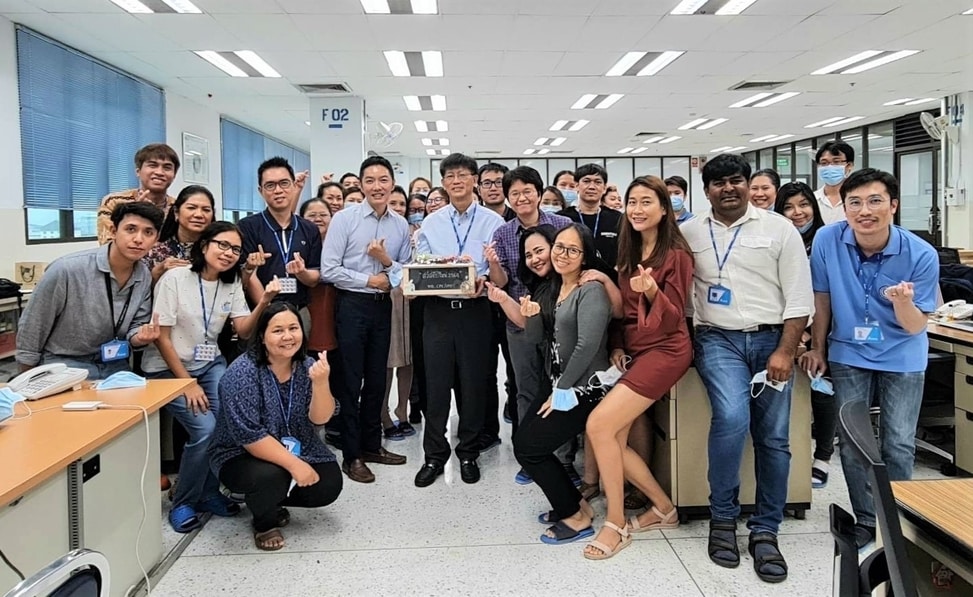 During the COVID-19 crisis, we all learned to stay focused and united. We also need to take care of each other, especially in terms of health and personal hygiene. I sincerely hope that this pandemic will quickly come under control so we can resume our normal lives.
During the COVID-19 crisis, we all learned to stay focused and united. We also need to take care of each other, especially in terms of health and personal hygiene. I sincerely hope that this pandemic will quickly come under control so we can resume our normal lives.
For newcomers and ambitious colleagues, there are opportunities within our Delta global group to broaden your knowledge and experience, so take advantage to explore and seek challenges you are aiming for when charting your career plan.
As American football player Ralph Marston said, “Your destiny is to fulfill those things upon which you focus most intently. So choose to keep your focus on that which is truly magnificent, beautiful, uplifting and joyful. Your life is always moving toward something.”
Last but not least, I would like to take this opportunity to wish everyone and their families a Merry Christmas and Happy 2022 New Year! Stay Safe and Healthy.
